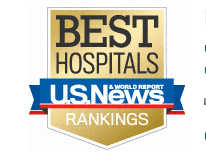Advertisement
What's Missing From Those Top Doctor And Hospital Rankings?
 Here's an excellent piece by Harold DeMonaco, director of the Innovation Support Center at Massachusetts General Hospital on what's missing from those annual hospital and doctor rankings that get so much attention (hint: it's the people getting the care). Writing for Gary Schwitzer's HealthNewsReview Blog, DeMonaco asks some important questions about why patients — the actual consumers of health care — don't get to vote on who's the best:
Here's an excellent piece by Harold DeMonaco, director of the Innovation Support Center at Massachusetts General Hospital on what's missing from those annual hospital and doctor rankings that get so much attention (hint: it's the people getting the care). Writing for Gary Schwitzer's HealthNewsReview Blog, DeMonaco asks some important questions about why patients — the actual consumers of health care — don't get to vote on who's the best:The Top Doctors list is based on nominations from physician peers either practicing locally or more recently, anywhere in the US. Decentralization requires the nominator to have personal information about the nominee. A primary care physician who nominates a cardiologist to whom he has referred patients is likely to have some understanding of that individual's capabilities and is likely to have sought out the opinion of others as well. The nomination process is presumably an independent one with a very small likelihood of concerted efforts to "stuff the ballot box." And US News and World Report along with Castle Connolly Medical provide the aggregation of data. So, based on the opinion of the experts, the list should provide consumers with good information. But there is a big piece missing; diversity or the voice of the consumer.
Why is it that medicine is one of the few domains where the views of the insiders is held in such high esteem as to almost completely ignore the voice of the consumer? Where is the voice of the consumer and what about the quality of care? One could argue that the technical nature of surgery is such that it would be impossible for the patient or family to rate the skill of the surgeon. The success or failure of surgery is a complicated blending of patient factors, skill of the surgeon and other caregivers and unfortunately luck. There have been attempts at the state level to provide consumers with information about surgical outcomes at hospitals with the usual issues related to severity of illness and small sample size for individual physicians. Perhaps then peer evaluation is the right method for technical specialties such as cardiac surgery when combined with information about outcomes. But how should expertise of a cardiologist, endocrinologist or other "non-technical medical specialties" be evaluated? Should it be purely based on peer evaluation/nomination? Or, should the patient review and outcome be included in the measures?
This program aired on August 4, 2011. The audio for this program is not available.
